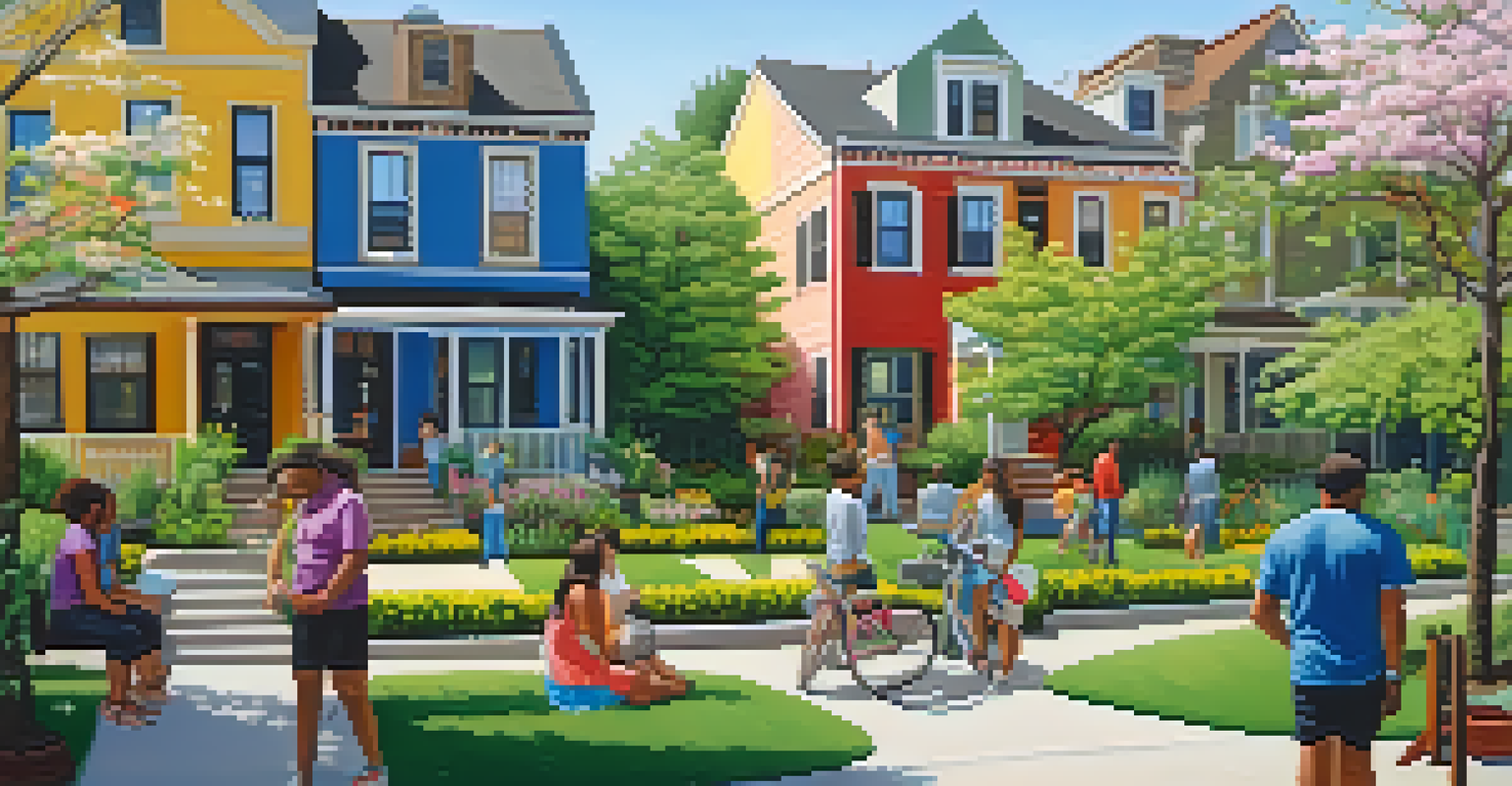The Intersection of Home Buying and Personal Identity

Understanding Personal Identity in Home Buying
Personal identity is a complex blend of experiences, values, and beliefs that shape who we are. When it comes to buying a home, this identity plays a crucial role in the choices we make. Our homes often reflect our lifestyles, aspirations, and even our cultural backgrounds, becoming a canvas for expressing who we are.
Home is the starting place of love, hope, and dreams.
For many, the decision to purchase a home is not just about real estate—it's about belonging. A home can symbolize stability, family, or cultural heritage, and these elements contribute significantly to our sense of self. Therefore, understanding how personal identity intertwines with home buying is essential for making informed decisions.
Moreover, the emotional ties we form with our living spaces can influence our identity over time. As we invest in a home, we often craft a narrative that connects our personal growth with the physical space we inhabit, leading to a deeper understanding of ourselves.
Cultural Influences on Home Buying Decisions
Culture profoundly impacts how we view home ownership. Different cultures have unique values regarding family structure, community, and property, all of which shape the home-buying process. For example, in some cultures, multi-generational living is common, influencing the size and layout of the home one might seek.

Additionally, cultural backgrounds can dictate preferences in aesthetics, such as architectural styles and interior design. A house that resonates with one’s cultural identity can provide a sense of belonging and comfort, making the home more than just a physical structure.
Identity Shapes Home Buying Choices
Personal identity significantly influences the decision-making process when purchasing a home, reflecting one's values, culture, and lifestyle.
As we navigate the home-buying journey, it’s essential to recognize how these cultural factors inform our choices. By honoring our roots and traditions, we can find spaces that truly reflect our personal identities.
Economic Status and Its Impact on Identity
Economic status is a significant factor in the home-buying process and can greatly influence personal identity. The ability to purchase a home often reflects financial stability, which can enhance one's self-perception and social standing. This is why many people view home ownership as a milestone of success.
The greatest gift of a home is not just a roof over your head, but a place where you can be yourself.
However, the pressure to own a home can lead some individuals to make compromises that don't align with their true identity. For instance, they may choose a property based on market trends rather than personal preference, which can create a disconnect between who they are and where they live.
Understanding this dynamic allows potential buyers to make more intentional decisions. By aligning their home choices with their values and lifestyle, they can foster a sense of authenticity and fulfillment.
The Psychological Connection Between Home and Identity
The psychological bond we form with our homes can be profound. For many, a home is not just a place to live but an extension of their identity. It holds memories, represents life stages, and can evoke emotions that are central to who we are.
This connection often leads to a phenomenon known as 'place attachment,' where individuals feel a deep emotional bond to their living spaces. This attachment can influence everything from home decor choices to the decision to renovate, as people strive to create environments that resonate with their personal narratives.
Cultural Background Affects Preferences
Cultural influences dictate home ownership values, aesthetic preferences, and living arrangements, impacting the overall home-buying experience.
Recognizing this psychological aspect can help buyers understand their motivations. It encourages them to seek homes that not only meet practical needs but also align with their emotional and psychological well-being.
How Neighborhoods Shape Our Identity
The neighborhoods we choose to live in play a pivotal role in shaping our identities. Each community has its own culture, values, and social dynamics, all of which influence how residents see themselves. A neighborhood can reinforce personal values, such as community engagement or a love for nature.
Moreover, the people we surround ourselves with in our neighborhoods can also impact our identity. Friendships, social networks, and shared experiences within a community foster a sense of belonging and can shape our perspectives on life.
As such, selecting the right neighborhood is just as important as choosing the right home. By understanding the cultural and social fabric of a community, buyers can find a space that feels like a true reflection of their identity.
Personal Growth Through Home Ownership
Home ownership often serves as a catalyst for personal growth and self-discovery. The process of buying a home can challenge individuals to confront their values, priorities, and long-term goals. As they navigate this journey, they often develop a clearer sense of what truly matters to them.
Furthermore, the responsibilities that come with home ownership—maintenance, financial planning, and community involvement—can lead to significant personal development. Homeowners often learn valuable skills that contribute to their sense of competence and self-efficacy.
Moving Fuels Personal Growth
Relocating to a new home offers opportunities for self-discovery and personal development, allowing individuals to redefine their identities.
Ultimately, the journey of buying a home can reflect broader life lessons. The decisions made during this process can reveal insights about one's identity and aspirations, fostering a deeper connection to both the home and oneself.
Embracing Change: Moving and Identity Evolution
Change is a constant in life, and moving to a new home is one of the most significant transitions we can experience. Each time we relocate, we have the opportunity to redefine our identities and embrace new aspects of ourselves. This can lead to personal growth and an expanded understanding of who we are.
For many, moving to a different city or community can introduce new perspectives and lifestyles. It can challenge preconceived notions and encourage individuals to adapt and evolve, ultimately enriching their identities.

Embracing this fluidity allows individuals to view their homes as not just static places but as part of an ongoing journey of self-discovery. Each move can offer a fresh start and a chance to cultivate a life that resonates more deeply with one's evolving identity.